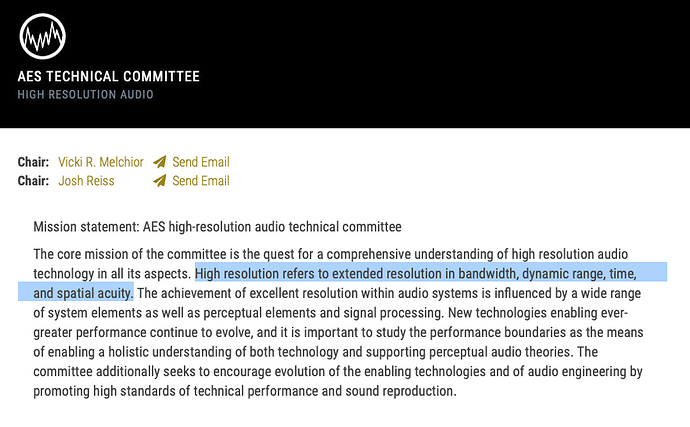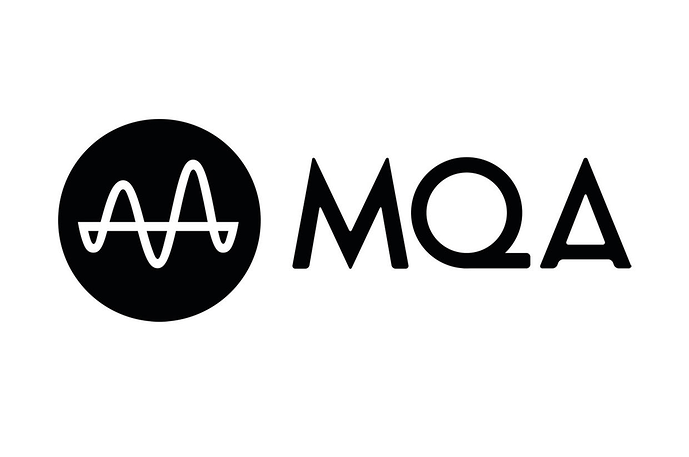MQA is not a label, or even a recording/mastering process. It is a digital encoding, so everything it can or can not do is stuck in the very “simplistic” domain which Bob S derides. This is yet another example of his duplicity.
Yes, terms like “resolution” have more than one meaning even in audio. On the subjective evaluation side, “resolution” (e.g., the ability of a transducer to resolve fine detail {“microdetail”}, or fine graduations of volume {“microdynamics”}) has a long and established history/meaning. So Bob Stuart comes alone with a SuperMP3, that is lossy and employs a certain digital filtering scheme that pushes one philosophy (i.e. that slow, leaky and distorting, out of phase filtering is “good” and the more common linear phase, low IM distorting filtering is “bad”). Ok, but why does he confuse the issue? Why does he purposely abuse how “resolve” and “resolution” is used in the digital domain with how these same terms are used in the subjective/evaluation domain?
It is exactly as you say, to $sell$ something - MQA. He wants the consumer to believe that he has something new - an advance, a SQ improvement. However, his philosophy is not new, it’s just old and known opinion repackaged in a proprietary, DRM container.
Where you get all this wrong is when you say that ““High-Res Audio” is just as pernicious of a branding effort, if not more, than MQA.” This can’t be, because Hi Res Audio is a known and relatively easily understood (even for non-technical consumers) meaning and philosophy. It is the idea that, all else being equal, a higher digital sample rate will be advantageous. That’s all it is. Have certain companies abused it - overselling it and their products? Of course. However, it is not a “product” itself - its just a definition and consensus. It is also transparent - anyone can observe, test, accept or reject it as a thing, philosophy, tool, and method.
MQA however is a “product”, and its alleged and definition bending “resolution” is in a proprietar/IP protected black box. You can’t take it out and examine it, test it, or confirm it. You can’t even use it unless you agree to Bob S closed/proprietary ecosystem. If you do take it out and examine/test it, your subject to DRM and legal ramifications.
All that said, Bob S is intentionally obscuring these two domains (digital and subjective evaluation) to $sell$ something. What somewhat surprises me about this whole affair is how snookered other manufacturers and industry insiders have been by all of this. They have to know that Bob S is a con man - a poison pill who is undermining the goodwill and capital of the consumer/manufacturer relationship. His abuse of “resolution” is a set back for the industry in that they have worked hard to educate the non-technical consumer around things/terms like “Hi Res”, fidelity, compression, lossy, etc.
Bob Stuart and his brand of carnival row marketing is a bull in the glass room of an industry in decline. Time to wake up “industry insiders” and push back on this bull - for your own good if not the consumers…




